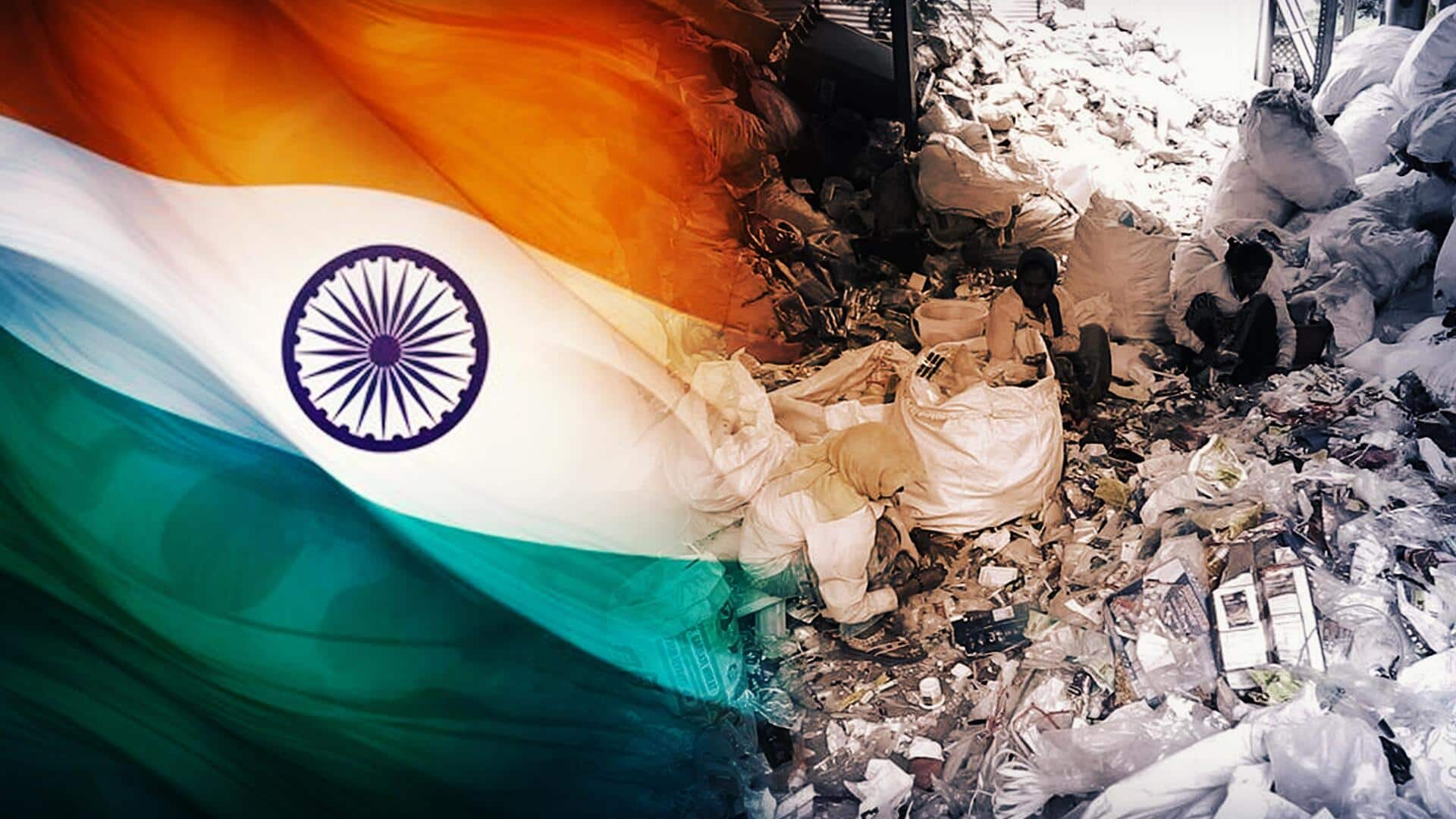
India is world's largest contributor to plastic pollution: Study
What's the story
India is the world's largest contributor to plastic pollution, accounting for a fifth of the global total, according to a study published in the journal Nature.
The research revealed that India burns approximately 5.8 million tons (mt) of plastic annually and discharges an additional 3.5 mt into the environment as debris.
This brings India's total contribution to global plastic pollution up to 9.3 mt per year, significantly more than Nigeria (3.5 mt), Indonesia (3.4 mt), and China (2.8 mt).
Waste statistics
Global plastic waste production and management
The study, conducted by researchers from the University of Leeds, estimated that around 251 mt of plastic waste is produced globally each year.
This amount is equivalent to filling approximately 200,000 Olympic-sized swimming pools.
The researchers found that about a fifth of this waste (52.1 mt) is "emitted" into the environment unmanaged.
Unmanaged waste refers to plastic that ends up in the environment either as debris or as a result of open, uncontrolled fires.
Pollution impact
What's unmanaged waste
Unmanaged waste is defined as plastic that ends up in the environment either as debris or from burning in open, uncontrolled fires.
This type of pollution can be found everywhere on Earth, from Mount Everest's peaks to the Mariana Trench's depths in the Pacific Ocean.
The study found that roughly 43% of unmanaged waste (22.2 mt) is unburned debris, while the rest (29.9 mt) is burnt at dumpsites or locally.
Geographic disparity
Global divide in plastic pollution
The study also highlighted a significant divide between the Global North and South in terms of plastic pollution.
It found that "plastic waste emissions are highest across countries in Southern Asia, Sub-Saharan Africa and South-eastern Asia."
Surprisingly, approximately 69% of the world's plastic pollution comes from 20 nations, none of which are High Income Countries (HICs).
This is despite HICs having higher plastic waste generation rates than countries in the South.
Treaty talks
Ongoing negotiations for international treaty on plastic pollution
The study's findings are timely as negotiations proceed for the first legally binding international treaty on plastic pollution.
In 2022, the UN Environmental Assembly committed to creating this treaty by the end of 2024. However, reaching agreement on its terms has been difficult.
Fossil-fuel producing countries and industry groups consider plastic pollution a "waste management problem," while others, including the European Union and African nations, support phasing out single-use plastics and imposing production restrictions.